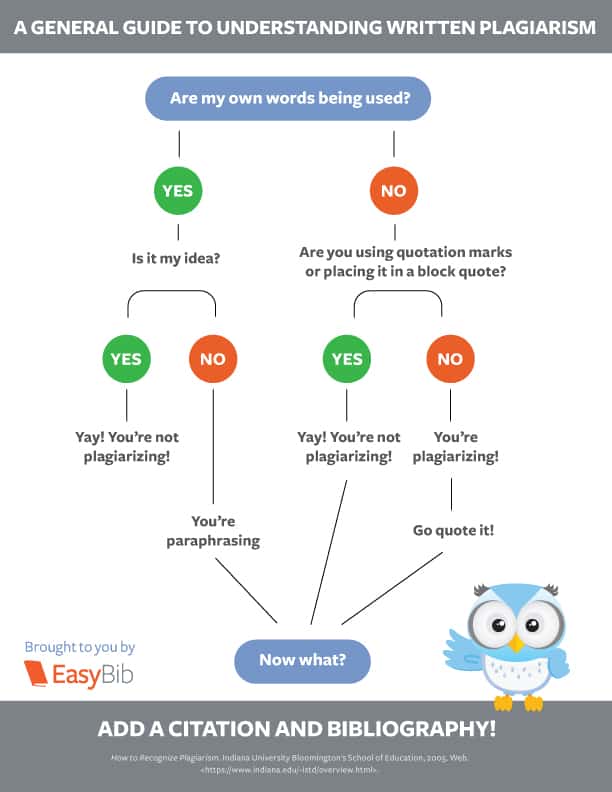Tips for Avoiding Plagiarism
READ THE SOURCE IN ITS ENTIRETY
- It's easy to take something out of context if you only read a portion of it! If you read the entire source, you should have a better feel of the author's meaning.
TAKE DETAILED NOTES AS YOU READ
- Anytime you note something word-for-word, immediately place it in quotation marks. Also note what page or section you found it on.
- On each page, make sure you note the original source and the date you accessed the source. This will make citation much easier, especially if you are working with multiple sources or doing research over a long stretch of time.
- Try not to mix your own thoughts and commentary with excerpts from your source. Keep them on separate pages, draw two columns on your page, or switch your pen color.
- If you find it difficult to take notes with electronic sources - or if you find yourself drawn to the copy-paste method - print out your sources and deal with them in print form.
RETURN TO YOUR NOTES LATER
- In order to do this, you must not procrastine on your projects. If you don't have sufficient time, you won't do your best work, and it may lead you to make poor decisions when including your sources. Build in time to synthesize and properly work in your sources.
- Identify which sources are best for inclusion. Understand when you have to cite. Then decide whether you should directly quote, summarize, or paraphrase. If you are directly quoting, double-check your notes against the source for accuracy. If you are summarizing or paraphrasing:
- Make sure the source is fresh in your mind, but not right in front of you. If you see the original text, you are more likely to want to use their terms and sentence structure.
- Check your writing against the original. Remember, you should have changed the sentence structure and the language but the meaning of the source should still be the same. Any language that is unique to the source should be placed in quotation marks or removed. You may find it necessary to do several edits.
CONSULT WITH THE EXPERTS
- If you need a second opinion, ask! Ask a librarian, a classmate, the Writing Center, or your professor.


